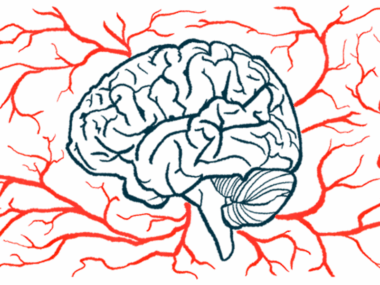Antibiotic, antifungal use show slight links to Parkinson’s in study
Repeated penicillin courses slightly lowered risk, while antifungals raised it
Written by |

People who received five or more courses of penicillin antibiotic treatment in the five years before a Parkinson’s diagnosis had an approximately 15% lower risk of developing the disease than those who took no antibiotics, according to a Rutgers Health study.
Conversely, treatment with two or more courses of antifungals in the five years before diagnosis was associated with about a 16% higher risk of Parkinson’s disease.
The study, “Effects of antimicrobial exposure on the risk of Parkinson’s disease”, was published in Parkinsonism & Related Disorders.
Many people think of Parkinson’s disease as primarily a brain disease, characterized by the degeneration of dopamine-producing nerve cells leading to an array of motor symptoms. However, increasing evidence suggests the gut may play a critical role.
In addition to genetic and environmental factors that contribute to the development of Parkinson’s disease, disruption of the gut microbiome — the trillions of microbes living in the human digestive tract — may play an important role in triggering the disease. Gastrointestinal symptoms, such as constipation, are often found in patients years before they develop motor symptoms.
Antibiotic medications alter gut microbiome
Some studies suggest that more than 30% of gut microbial species are found in abnormal numbers in Parkinson’s patients and that some large scale disruptions of the gut microbiome may be related to more severe motor symptoms, contributing to disease progression.
“There’s an idea that the disease starts in the gut and that inflammation in the gut can make the gut more leaky and allow toxins or inflammation to ascend to the brain,” Gian Pal, MD, associate professor at Rutgers Robert Wood Johnson Medical School and the study’s lead author, said in a university news story.
To explore the link between the gut and the risk of developing Parkinson’s, researchers compared anonymized medical records from 12,557 people diagnosed with Parkinson’s disease with those of 80,804 people without a Parkinson’s diagnosis. The median follow-up time was 26 years for Parkinson’s patients and 25.3 years for control subjects. Subjects followed for less than 10 years were excluded from the study.
The researchers found that the use of antimicrobial medications that alter the gut microbiome had a modest effect on the risk of later developing Parkinson’s disease.
Repeated courses of five or more treatments with penicillin antibiotics for up to 15 years prior to diagnosis decreased a person’s risk for developing Parkinson’s, they found.
In contrast, repeated courses of treatment with antifungals, particularly two or more courses in the five years before diagnosis, were associated with a greater risk of Parkinson’s disease.
A person’s risk of developing Parkinson’s was also associated with an increased number of genitourinary tract infections, skin infections, and combined infection count.
The researchers cautioned that these different treatments with antimicrobial drugs only modestly affected risk and that these small associations should not affect the prescription and use of these drugs.
“These are all very mild, so it should not influence decisions about when to use antibiotics or antifungals,” Pal said. “The importance of the study is that it speaks to the idea that something going on in the gut microbiome could influence Parkinson’s disease.”
The researchers said their findings support the hypothesis that inflammation or toxins from certain gut bacteria could contribute to the disease’s development. “The fact that a medication that you take only for a few days to alter your microbiome in a small way alters your Parkinson’s risk – to me, that makes a stronger case that the microbiome is implicated,” Pal said.
The scientists also noted that while there is substantial evidence supporting a role for gut bacteria in Parkinson’s, the potential contributions of fungi to the disease remain to be further studied.
“Better understanding what the antifungal composition is in the gut — which really hasn’t been well explored — and seeing if that is useful in distinguishing Parkinson’s patients from non-Parkinson’s patients would be useful,” Pal said.



